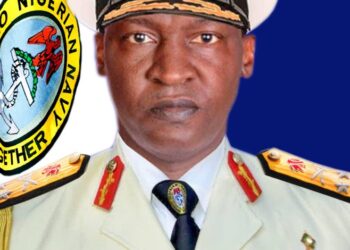President Bola Ahmed Tinubu has urged world leaders to act with unity, courage, and steady commitment in addressing the worsening global climate crisis.
Speaking on Wednesday during a high-level virtual dialogue on climate and the just transition, Tinubu reaffirmed Nigeria’s resolve to pursue climate action alongside economic growth.
“The global climate emergency demands bold, collective, and consistent leadership. For Nigeria, the urgency is clear. We view climate action not as a development cost, but as a strategic priority,” he said.
UN Secretary-General António Guterres and Brazilian President Luiz Inácio Lula da Silva co-hosted the dialogue to boost climate ambition ahead of COP30 in Brazil.
Seventeen countries joined the meeting, including China, the European Union, climate-vulnerable states, and regional blocs like the African Union, ASEAN, and the Alliance of Small Island States. All participants sent a clear message: climate action is moving forward at full speed.
Speaking from Abuja, President Tinubu presented Nigeria’s Energy Transition Plan (ETP). He described it as a bold, practical roadmap to achieve net-zero emissions by 2060. The plan targets five sectors: power, cooking, transport, oil and gas, and industry. It requires more than $410 billion in funding by 2060.
“We’re aligning our regulatory frameworks, fiscal policies, and institutions to ensure energy access, decarbonisation, and competitiveness move together,” Tinubu said. “Nigeria is also taking the lead on energy access.”
He highlighted Nigeria’s key role in Mission 300, an initiative with the World Bank and African Development Bank. The goal is to provide electricity to 300 million Africans by 2030.
Tinubu also recalled joining the Dar es Salaam Declaration and presenting Nigeria’s National Energy Compact. The compact outlines energy sector reforms, investment opportunities, and measurable goals for expanding clean energy and cooking solutions.
“This compact is one of the first of its kind in Africa,” he said. “It includes policy reform commitments and identifies specific investment opportunities. It sets targets for improving electricity access and increasing clean cooking adoption.”
Market Reforms at the Core of Climate Strategy
Tinubu stressed Nigeria’s focus on capacity-building to meet its targets. “We aim to show not just ambition, but measurable results,” he said.
He announced the finalisation of Nigeria’s Carbon Market Activation Policy in March 2025. The policy aims to generate up to $2.5 billion in carbon credit investments by 2030.
Nigeria is also updating its Nationally Determined Contributions (NDCs) under the UN Framework Convention on Climate Change. A full revision will be ready by September 2025.
“Our climate strategy isn’t limited to planning and regulation. It’s rooted in market reform,” Tinubu said.
He introduced the Global Climate Change Investment Fund, designed to attract climate-smart investments. The fund will combine public and private capital, reduce risks for green projects, and scale clean energy financing.
The fund will support major priorities like green industrial hubs, e-mobility infrastructure, regenerative agriculture, and renewable mini-grids for underserved communities.
Tinubu thanked international partners, especially the United Nations and Sustainable Energy for All (SEforALL), for their technical and advisory support.
“These partnerships show the power of multilateral cooperation in delivering climate solutions,” he said. “Nigeria is ready to collaborate, lead, and act, because the time for climate action is not tomorrow. It’s now.”











